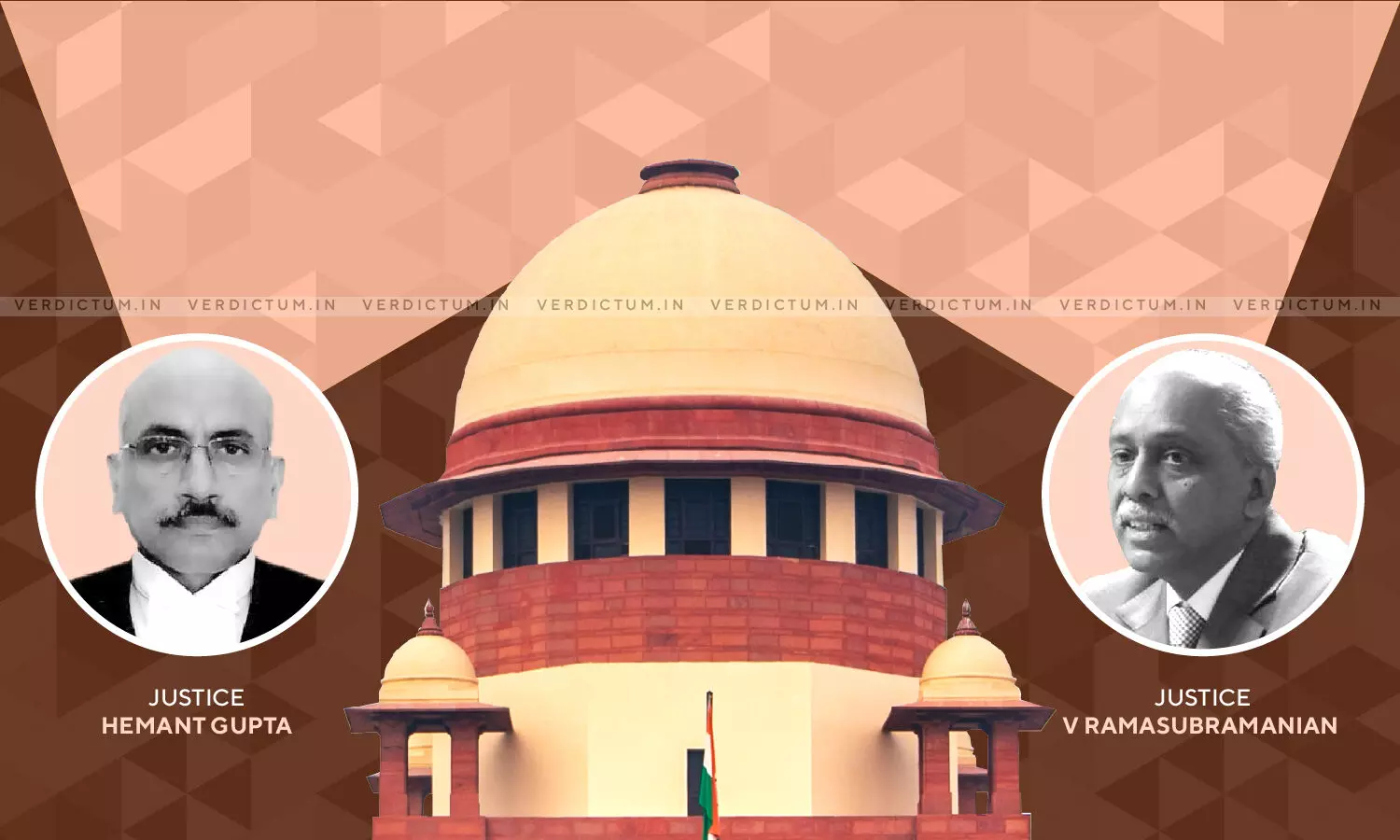
Onerous Condition Of Pre-Depositing 50% Amount To Challenge NCDRC Order Not Applicable To Complaints Filed Prior To Consumer Protection Act 2019 - SC
 |
|A two-judge bench of the Supreme Court comprising of Justice Hemant Gupta and Justice V Ramasubramanium has held that the onerous condition of pre-depositing 50% amount awarded to challenge the NCDRC order would not be applicable to the complaints filed before the commencement of the Consumer Protection Act 2019.
Further, the Bench has observed that the proceedings instituted before the commencement of Consumer Protection Act, 2019 would continue before the fora corresponding to the provisions under the Consumer Protection Act, 1986 in order to prevent the serious hardship which would be caused to the consumers if the cases already instituted before National Consumer Disputes Redressal Commission were required to be transferred to the State Consumer Disputes Redressal Forum.
In this case, the complainant was awarded a contract for the construction of rainwater drainage, heavy sewerage, and municipal road system by the Government of Basra, Iraq. The complainant obtained two specific contracts (Letter of Credit Comprehensive Risks Policies) by paying a sum of ₹10,38,03,912/- as a premium to the Appellant. The grievance of the complainant was that the payment for invoices issued for the work done under the contract was suspended. Later, the contract also was withdrawn by the Government of Basra owing to some internal conflict. The Appellant rejected the insurance claim of the complainant and thus relief was sought before the National Commission by filing a complaint which was allowed. This impugned judgment was challenged before the Supreme Court.
The Attorney General appeared for the Appellant while Senior Counsel, Mr. Nidhesh Gupta represented the Respondent before the Apex Court.
The primary issue in this case was -
- Whether the present appeal would be governed under the Consumer Protection Act, 2019, or under the erstwhile 1986 Act.
It was contended by the Appellant that the appeal had been preferred under Section 23 of the 1986 Act and not under the 2019 Act which came into force from 20.7.2020. It was argued that the condition of deposit of 50% of the amount was more onerous than what was provided under the 1986 Act. Therefore, keeping in view the principle that the law which was applicable at the time of initiation of the lis would be applicable, i.e. the provisions of the 1986 Act would govern the present appeal and not the provisions of the 2019 Act. It was further claimed that Section 107 of the 2019 Act and Section 6 of the General Clauses Act, 18974 unequivocally operated against any question of retrospectivity. It was further submitted that the right to file an appeal under the 1986 Act had accrued in favor of the Appellant in terms of Section 6(c) of the General Clauses Act and that no different intention was discernible from the repealing Act.
On the other hand, the Respondent argued that until the actual assessment was made, there could be no lis and therefore, no right of appeal could accrue before that date. Moreover, it was submitted that the amendment was procedural in nature and thus was always retrospective.
The Court observed that when an assessee filed a return, the lis may not immediately arise. The authority may assess the return under Section 11 of the 1947 Act, but if the authority was not satisfied as to the correctness of the return and called for evidence, a controversy could arise.
Furthermore, the Court noted that in the case of Neena Aneja v. Jai Prakash Associates Ltd., it was held that the right to the forum was not an accrued right. Section 6(e) of the General Clauses Act protected the pending legal proceeding for the enforcement of the accrued right from the effect of repeal; it did not mean the legal proceeding at a particular forum was saved from the effect of repeal.
The Court found that there was no express intention in the repealing enactment that all pending cases would stand transferred to the fora created under the 2019 Act. Having said so, the Court had held that serious hardship would be caused to the consumers if the cases already instituted before National Consumer Disputes Redressal Commission were required to be transferred to the State Consumer Disputes Redressal Forum. Thereafter, the proceedings instituted before the commencement of the 2019 Act would continue before the fora corresponding to the provisions under the 1986 Act.
Here, the Court observed that since the returns were filed prior to the amendment but the notice for reassessment was issued after the Amending Act came into force, therefore, in view of the case of Hoosein Kasam Dada (India) Ltd. v. State of Madhya Pradesh, the provisions of the Amending Act alone would be applicable.
Accordingly, the Court allowed the application.
Click here to read/download the Order